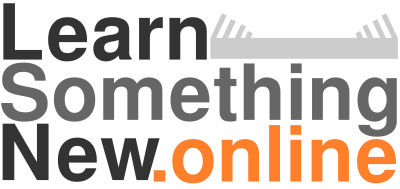How to Choose the Right Online Course for Career Growth Essentials
In the age of information technology, enhancing your career through online learning has become not just a convenience, but a necessity.
As you navigate the vast sea of digital education, choosing the right online course that aligns with your career ambitions can be the key to unlocking new opportunities and boosting your professional growth.
With carefully selected courses, you can gain the skills and knowledge that are in demand in your field, ensuring that your learning time is an investment in your future.

Before diving into an online course, it’s crucial to perform due diligence in researching the various providers and course structures available to you.
Assessing your career goals is the first step in this process, helping you to streamline your options to those that can offer the most tangible benefits.
Additionally, it’s essential to consider the quality of instruction, the flexibility of learning formats, and the financial commitment involved.
Investigating networking opportunities and additional resources that courses provide can also enrich your learning experience and enhance your professional network.
Key Takeaways
- Choose courses that align with your career goals to maximize their impact.
- Investigate the course provider’s reputation and the structure of the curriculum offered.
- Consider the course flexibility, financial cost, and additional benefits provided.
Evaluating Your Career Goals

Choosing the right online course can be pivotal in your professional development and career planning.
It’s important to ensure the courses you select align with your career vision and equip you with in-demand skills needed in the evolving digital economy.
Establishing Your Professional Goals
Begin by clearly defining your career goals.
What position do you see yourself in the next few years? Break these down to short-term and long-term objectives.
For example, short-term goals might include improving your communication skills, while long-term goals could involve aiming for a leadership role.
Aligning Courses With Career Vision
Once you’ve established your goals, seek online courses that align directly with your career vision.
If you’re targeting a specialized field, look for courses offering specific certifications or skillsets that are recognized and respected in your industry.
Consider how a particular course will bridge the gap between your current skills and the requirements of your dream job.
Planning for Future Industry Trends
Stay ahead by focusing on in-demand skills that anticipate future industry trends.
For example, if you’re in a tech field, you might consider courses in data analysis or cybersecurity.
Use tools and resources available online to monitor job market trends, ensuring the skills you’re acquiring will remain relevant and valuable.
Understanding Different Course Providers

When you’re aiming for career development, it’s critical to choose the right online course from a provider that aligns with your goals and offers recognized qualifications.
Exploring Platforms Like Coursera
Coursera is a well-known online learning platform that partners with top universities and organizations worldwide to offer a wide variety of subjects.
Courses on Coursera often end with a shareable certificate, which can be added to your resume or LinkedIn profile.
These certificates are a testament to your commitment to learning and can be valuable in your professional journey.
Certificates From Reputed Institutions
Renowned universities and colleges extend their reach through online courses, enabling you to earn certifications right from the comfort of your home.
You’ll find offerings from institutions known for their rigorous academic standards that can add weight to your professional qualifications.
Whether it’s a short course or an extensive program, having a certificate from such institutions can substantially enhance your resume.
Checking for Accreditation and Recognition
While reviewing course providers, it’s essential to check for accreditation and recognition.
Accredited courses have undergone a rigorous evaluation process and are more likely to be recognized by employers and industry professionals.
Ensure that the online course or program you’re considering is not only high quality but also comes with the recognition that will help you advance in your career.
Analyzing Course Content and Structure

Choosing the right online course involves a thorough analysis of the course content and its structure to ensure it aligns with your career development needs.
Investigating the Syllabus
Begin by examining the syllabus of the online course.
It should outline the main topics covered and the objectives for each section.
Look for detailed descriptions of what you’ll learn and how it relates to your career goals.
A comprehensive syllabus acts as a roadmap to the knowledge and skills you’ll gain.
For example, a syllabus that specifies outcomes, such as “apply project management skills in a real-world scenario,” offers a clear benefit to your career progression.
Understanding Module Breakdown
Dissect the module breakdown to assess if the course has a logical and manageable flow of information.
Each module should build on the last and contribute to your overall understanding of the subject.
Confirm that there are:
- Clear headings for each module.
- A series of learning outcomes associated with them.
- Resources such as required readings or supplementary material.
- A sample lesson or peek into the content can give you a better feel for what to expect.
Determining the Instruction Style
Finally, identify the teaching style that’s used in the course.
Does it rely heavily on lectures, interactive assignments, or discussion forums?
The method should cater to your preferred learning style.
For instance, if you value hands-on experience, a course with practical simulations or exercises might suit you best.
Moreover, look into the frequency and types of interactions you’ll have with instructors or peers, as this collaboration can be crucial for deeper comprehension and networking.
Assessing the Quality of Instruction

When choosing an online course for career development, it’s essential to scrutinize the quality of instruction as it directly impacts your learnings.
Researching Instructor Credentials
Investigate who’ll be teaching the course by checking their qualifications.
Look for instructors with a solid educational background, industry experience, and any necessary certifications.
Websites like TOPkit can provide insights into faculty and course developers’ qualifications.
Evaluating Teaching Methods
Review the course syllabus for a breakdown of teaching methods.
Are there interactive sessions, real-time discussions, and practical exercises?
Ensure techniques used are designed for engaging online learning.
Information about the alignment of course materials and activities with academic goals might be found on NSQOL.
Considering Peer and Expert Reviews
Lastly, pore over online reviews and feedback from both peers and industry experts.
Such evaluations can reveal a lot about the effectiveness of the course content and instruction methods.
For evidence of quality online course design and learner guidance, resources such as BestColleges are beneficial.
Determining Flexibility and Learning Format

When choosing an online course for your career development, it’s crucial to consider how it will fit into your life.
Flexibility, learning format options, and the chance to test the waters with a free trial make a big difference in managing your development efficiently.
Balancing Personal Schedule With Course Demands
Look for a program that aligns with your daily schedule.
Online degrees often offer a range of scheduling options to accommodate your commitments, from work to family.
Determine the time investment required each week and compare it to your available hours to ensure a healthy balance.
Selecting Self-Paced vs. Structured Classes
Decide if you prefer the freedom to learn at your own pace or the structure of set class times.
Self-paced courses offer high adaptability, allowing you to progress as quickly or slowly as you wish.
On the other hand, structured classes maintain regular schedules, which can be beneficial if you thrive on consistency.
Utilizing Free Trials for Experience
Many online courses offer free trials, providing an opportunity to assess the content and format before committing.
Take advantage of these trials to gauge the platform’s usability and whether the course’s format matches your learning style and technological proficiency.
It’s a risk-free way to ensure the course meets your needs for furthering your career.
Reviewing Networking and Communication Opportunities

Choosing the right online course for your career development isn’t just about the content you’ll learn but also the connections you’ll make.
Consider how a course facilitates networking and communication, as these are crucial for building professional relationships and exchanging ideas.
Analyzing Peer Interaction and Group Work
When selecting an online course, investigate how much peer interaction is encouraged.
Courses that include group work not only reinforce the material through collaboration but also provide you with the opportunity to network with like-minded learners.
Check for features like discussion boards, group projects, and peer review assignments.
This direct interaction can be a powerful tool for improving your communication skills.
Considering LinkedIn and Community Engagement
Consider courses that integrate with LinkedIn or have robust community engagement platforms.
A strong LinkedIn community can serve as an extension of the course and offer additional networking opportunities.
You should look for courses that encourage learners to connect via LinkedIn, where you can continue discussions and share industry insights long after course completion.
This integration can lead to valuable connections within your network and can significantly enhance your communication and networking abilities in a professional context.
Considering Financial Commitments

When stepping into the world of online learning, a key factor to ponder is how the cost aligns with your financial capacity.
Let’s dissect the financials to ensure your educational investment doesn’t strain your wallet.
Investigating Course Fees and Budget
To begin, conduct a thorough assessment of the course fees tied to your desired program.
Online courses can vary from free bite-sized modules to comprehensive programs with notable price tags.
Specifically, look for courses that offer a high value return for your investment.
You can find many options such as Coursera which offer a subscription model like Coursera Plus granting access to multiple courses under one fee—potentially a more economical route if you plan to take multiple classes.
It’s crucial to draft a budget factoring in your current financial obligations and potential course costs.
Your budget should consider:
- Tuition fees: Cross-check these against different platforms and services.
- Material costs: Will you need to purchase textbooks or software?
- Certification costs: Sometimes there’s a separate fee for receiving a certificate.
Exploring Scholarships and Financial Aid
Many online learning platforms and institutions offer some form of financial aid or scholarships, so be proactive in seeking them out.
Typically, aid is granted based on need or merit, and application processes will vary.
Don’t hesitate to reach out to the institution’s financial aid office or look for dedicated sections on their website for detailed information.
For instance, applicants with outstanding backgrounds might find themselves eligible for scholarships which can significantly reduce or completely cover course costs.
Keep a close eye on the application deadlines; these opportunities are often time-sensitive.
Identifying Additional Benefits and Resources

Choosing the right online course for career development is about more than just the core curriculum. It’s also important to consider the additional benefits and resources that can enhance your learning experience.
Accessing Supplementary Readings and Resources
Alongside the main content, many online courses offer a wealth of supplementary readings and resources.
These can provide a deeper understanding of the subject matter and enrich your knowledge.
You can often find carefully curated articles, case studies, and e-books that complement the course modules.
For example, the Harvard Business School offers a range of supporting materials that can extend your expertise beyond the basic curriculum.
- Benefit: Deepens your understanding of topics
- Resource Type: Articles, e-books, case studies
- Continuous Learning: Encourages ongoing education beyond course completion
Availability of Hands-On Projects and Assignments
The true test of your understanding of new concepts often comes from applying them in a real-world context.
Look for courses that include hands-on projects and assignments which can help you apply what you’ve learned.
These practical components allow you to demonstrate your skills and can often be added to your professional portfolio.
The projects also support the concept of continuous learning, as you can refer back to your assignments to see how theories are applied in practice.
- Benefits: Practically apply knowledge, enhance your portfolio
- Resource Type: Simulations, real-world projects
- Continuous Learning: Keep a record of completed projects to track progress and development
Gauging the Impact on Career Growth and Development

Choosing the right online course can enhance your career development. It can help you acquire new skills, earn valuable certificates, and position yourself for advancements or a career change.
Understanding the Role of Certificates in Hiring
Certificates serve as tangible proof of your commitment to professional growth.
When employers glance at your CV or LinkedIn profile, certificates can make you stand out from the crowd.
They signal that you have gone the extra mile to gain expertise in your field.
Leveraging Courses for Promotions and Career Change
To advance within your current role or pivot to a new career, strategically selected courses are key.
They can equip you with the skills needed to take on more responsibilities or enter a new industry.
For promotions, you’ll want to showcase how these courses have directly improved your work performance.
In terms of a career change, emphasize the transferable skills and new knowledge you’ve gained.
Building a Strong Professional Portfolio
Your professional portfolio is your chance to shine.
Incorporate certificates and course completions, as these demonstrate continued learning.
A dynamic portfolio with a variety of courses can show depth and breadth in your career development.
Make sure to tailor your portfolio’s content to match the career goals you’re aiming for.




